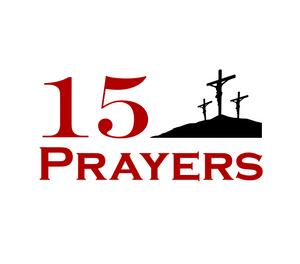
Book XXII
Of the eternal happiness of the saints, the resurrection of the body, and the miracles of the early Church.
Chapter 1
Of the creation of angels and men.
Chapter 2
Of the eternal and unchangeable will of God.
Chapter 3
Of the promise of eternal blessedness to the saints, and everlasting punishment to the wicked.
Chapter 4
Against the wise men of the world, who fancy that the earthly bodies of men cannot be
transferred to a heavenly habitation.Chapter 5
Of the resurrection of the flesh, which some refuse to believe, though the world at large
believes it.Chapter 6
That Rome made its founder Romulus a god because it loved him; but the Church loved Christ
because it believed Him to be God.Chapter 7
That the world’s belief in Christ is the result of divine power, not of human persuasion.
Chapter 8
Of miracles which were wrought that the world might believe in Christ, and which have not
ceased since the world believed.Chapter 9
That all the miracles which are done by means of the martyrs in the name of Christ testify to
that faith which the martyrs had in Christ.Chapter 10
That the martyrs who obtain many miracles in order that the true God may be worshipped, are
worthy of much greater honour than the demons, who do some marvels that they themselves may be supposed to be God.Chapter 11
Against the Platonists, who argue from the physical weight of the elements that an earthly
body cannot inhabit heaven.Chapter 12
Against the calumnies with which unbelievers throw ridicule upon the Christian faith in the
resurrection of the flesh.Chapter 13
Whether abortions, if they are numbered among the dead, shall not also have a part in the
resurrection.Chapter 14
Whether infants shall rise in that body which they would have had had they grown up.
Chapter 15
Whether the bodies of all the dead shall rise the same size as the Lord’s body.
Chapter 16
What is meant by the conforming of the saints to the image of the Son of God.
Chapter 17
Whether the bodies of women shall retain their own sex in the resurrection.
Chapter 18
Of the perfect Man, that is, Christ; and of His body, that is, the Church, which is His fullness.
Chapter 19
That all bodily blemishes which mar human beauty in this life should be removed in the
resurrection, the natural substance of the body remaining, but the quality and quantity of it
being altered so as to produce beauty.Chapter 20
That, in the resurrection, the substance of our bodies, however disintegrated, shall be entirely
reunited.Chapter 21
Of the new spiritual body into which the flesh of the saints shall be transformed.
Chapter 22
Of the miseries and ills to which the human race is justly exposed through the first sin, and
from which none can be delivered save by Christ’s grace.Chapter 23
Of the miseries of this life which attach peculiarly to the toil of good men, irrespective of
those which are common to the good and bad.Chapter 24
Of the blessings with which the Creator has filled this life, obnoxious though it be to the curse.
Chapter 25
Of the obstinacy of those individuals who impugn the resurrection of the body, though, as
was predicted, the whole world believes it.Chapter 26
That the opinion of Porphyry, that the soul, in order to be blessed, must be separated from
every kind of body, is demolished by Plato, who says that the supreme God promised the gods
that they should never be ousted from their bodies.Chapter 27
Of the apparently conflicting opinions of Plato and Porphyry, which would have conducted
them both to the truth if they could have yielded to one another.Chapter 28
What Plato or Labeo, or even Varro, might have contributed to the true faith of the resurrection, if they had adopted one another’s opinions into one scheme.
Chapter 29
Of the beatific vision.
Chapter 30
Of the eternal felicity of the city of God, and of the perpetual Sabbath.

